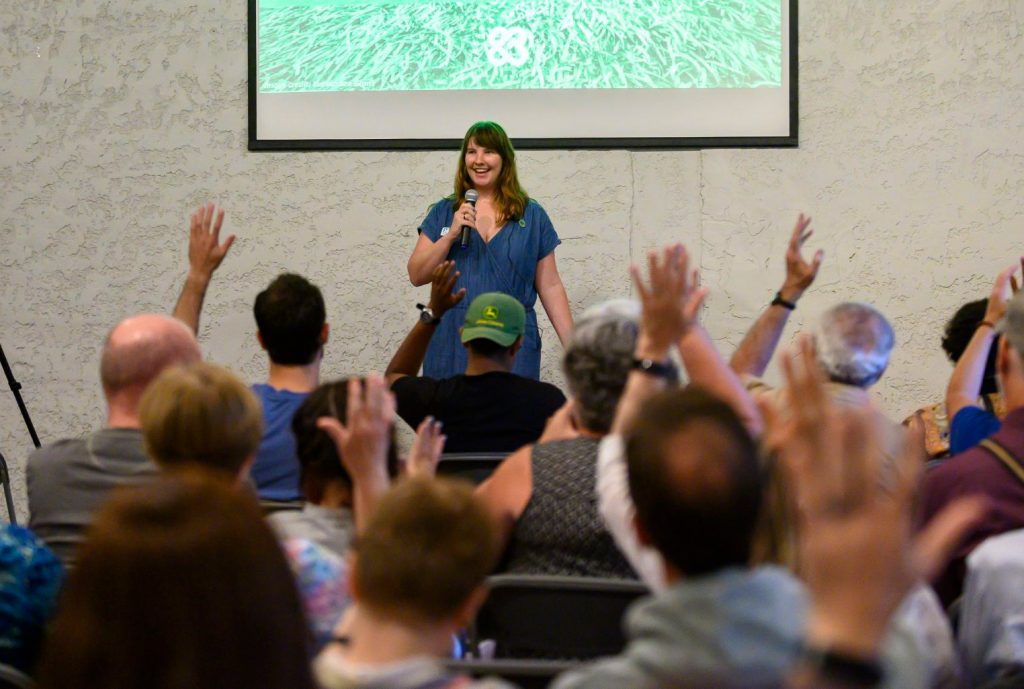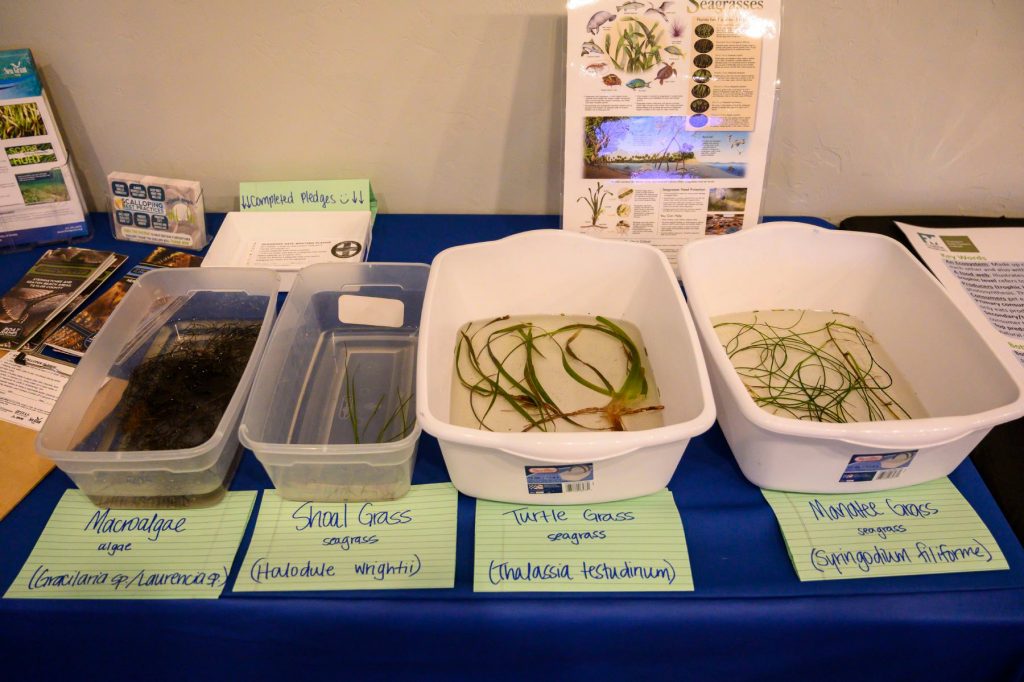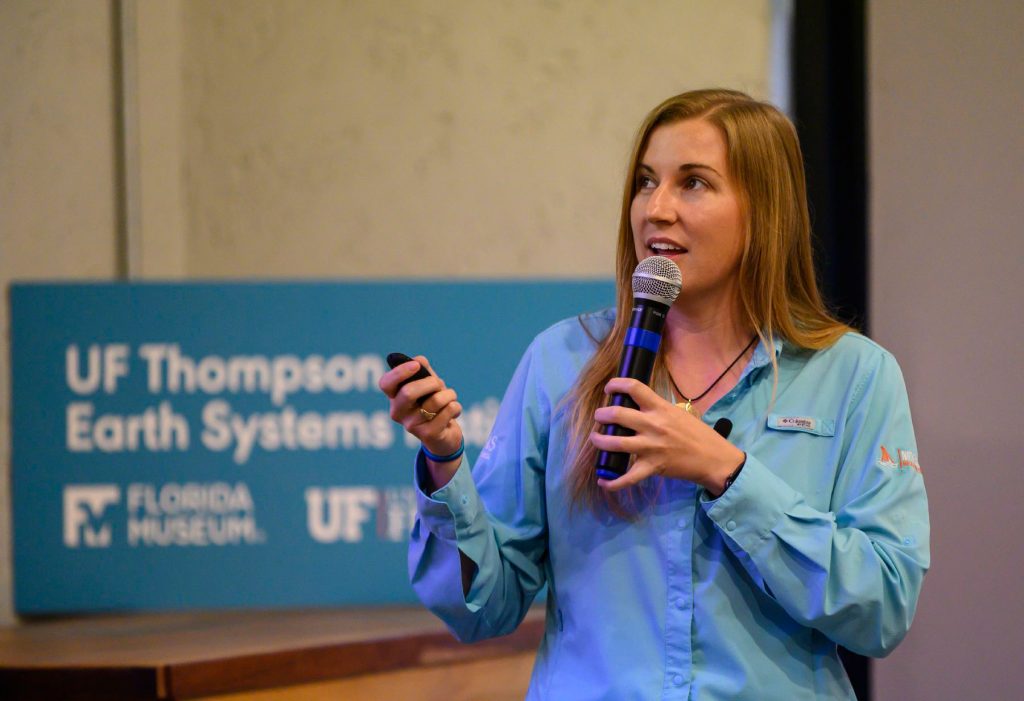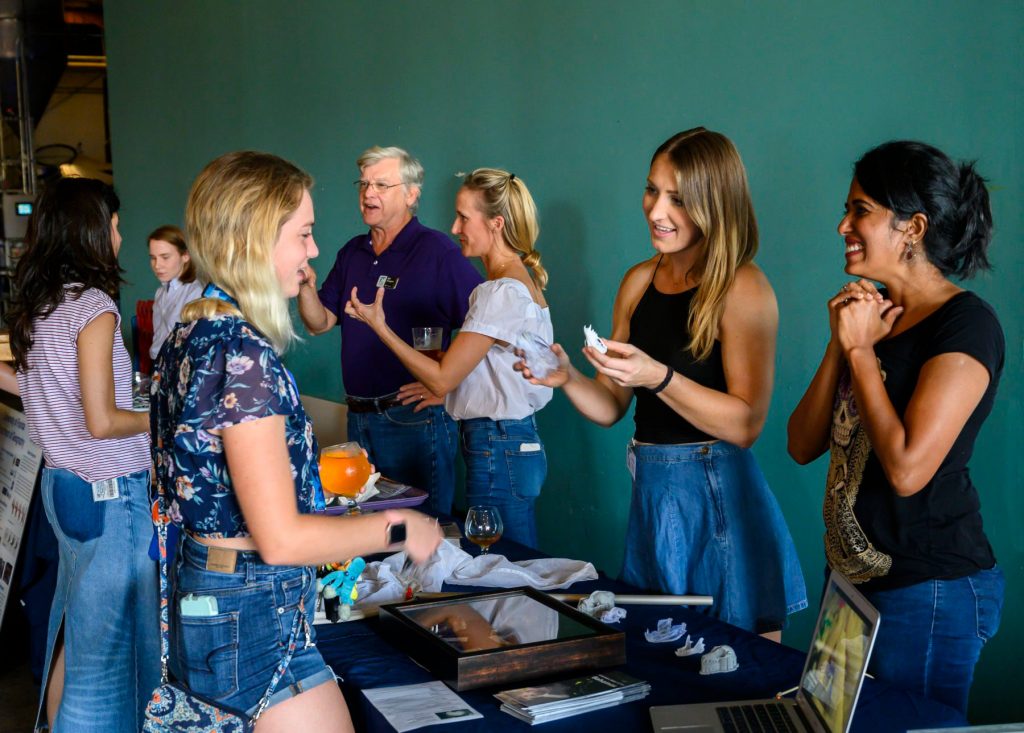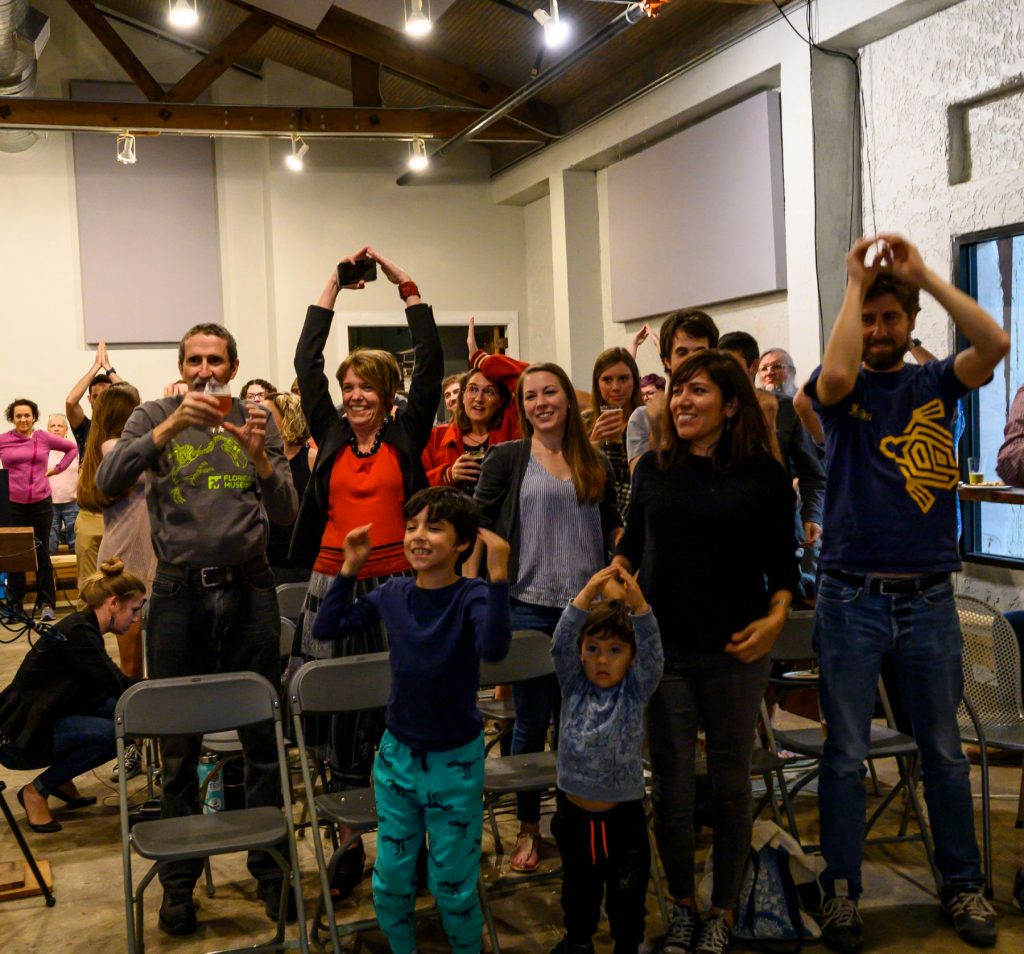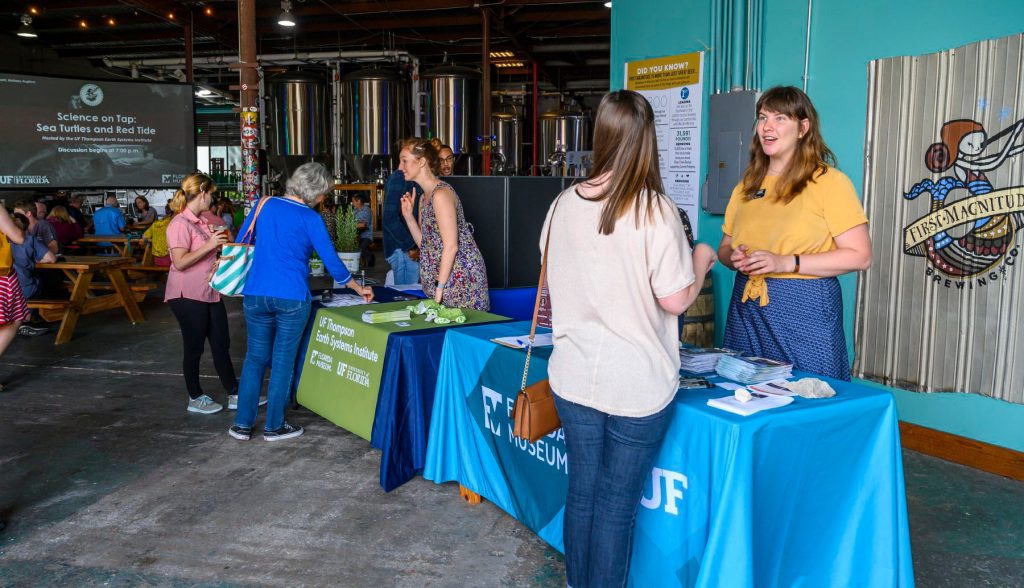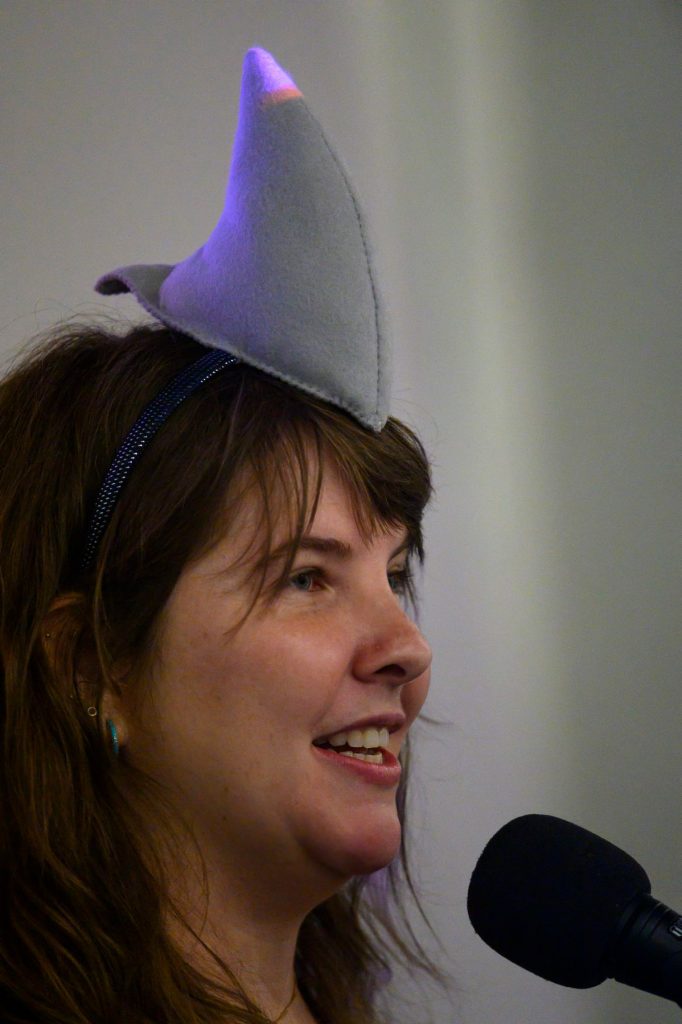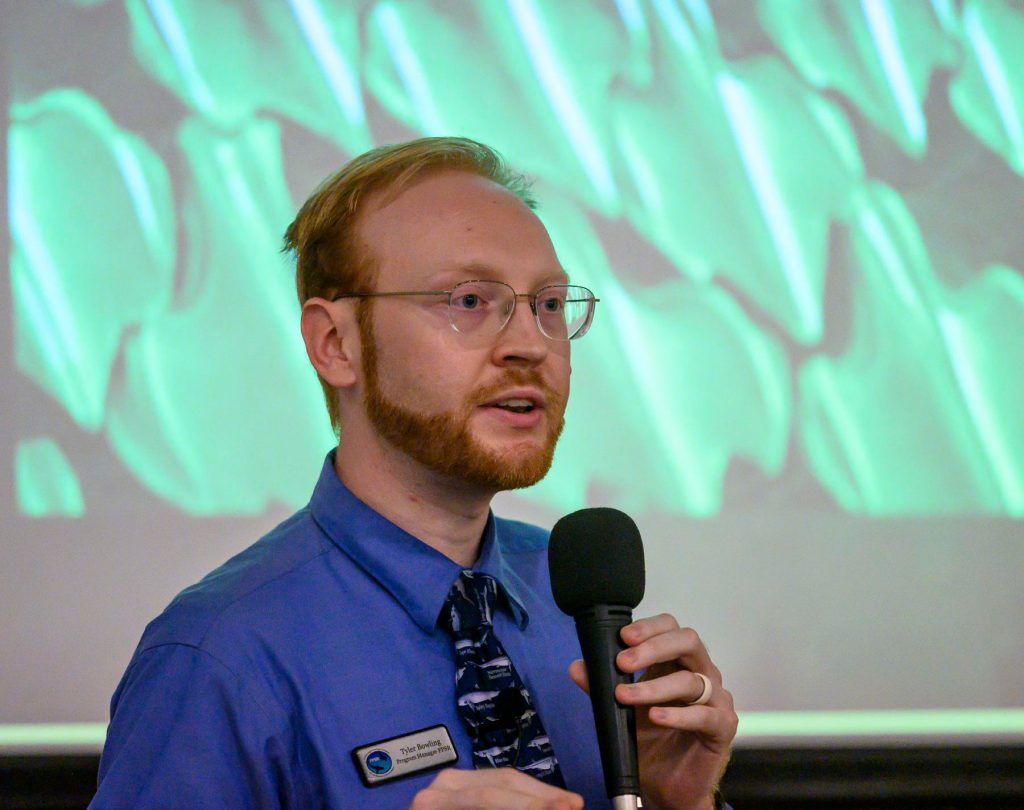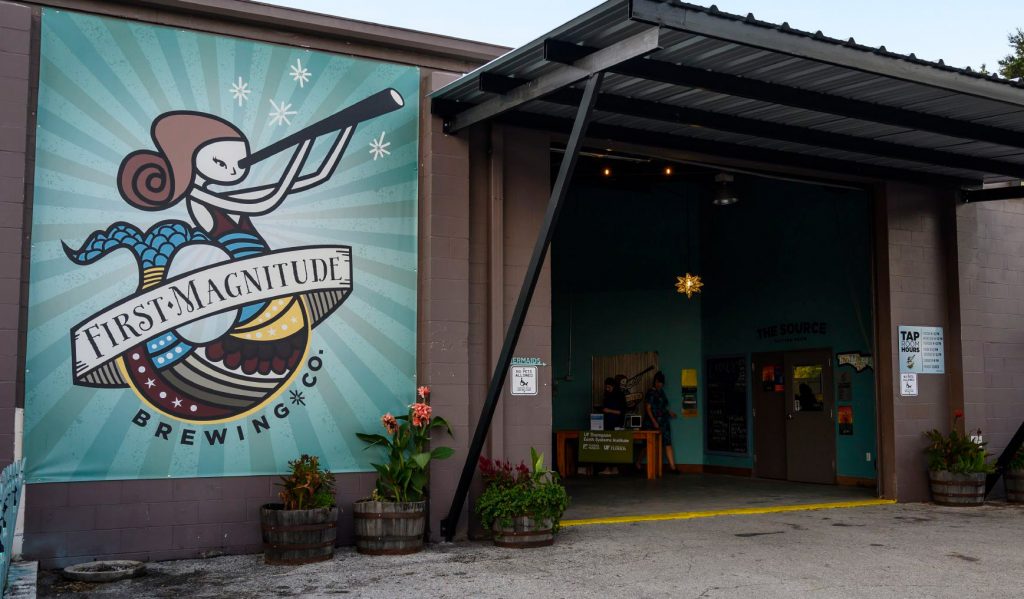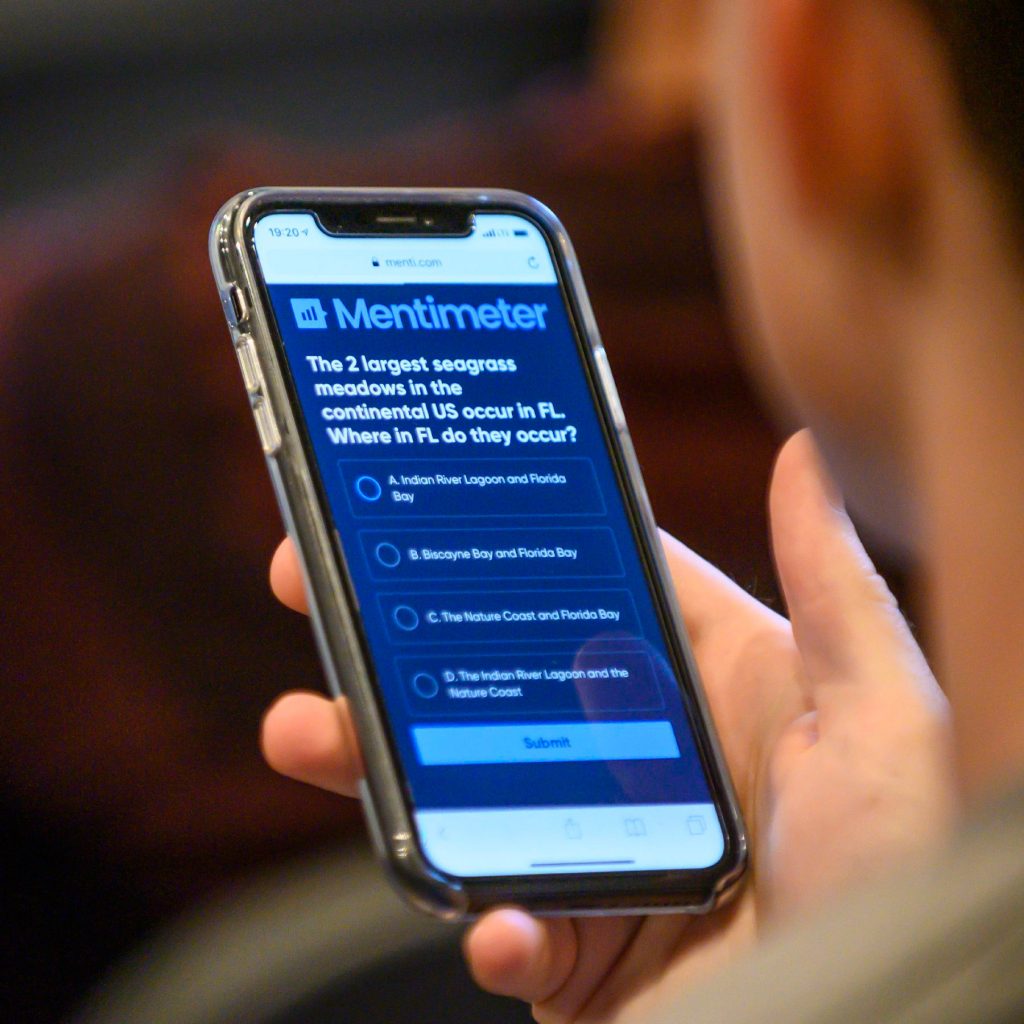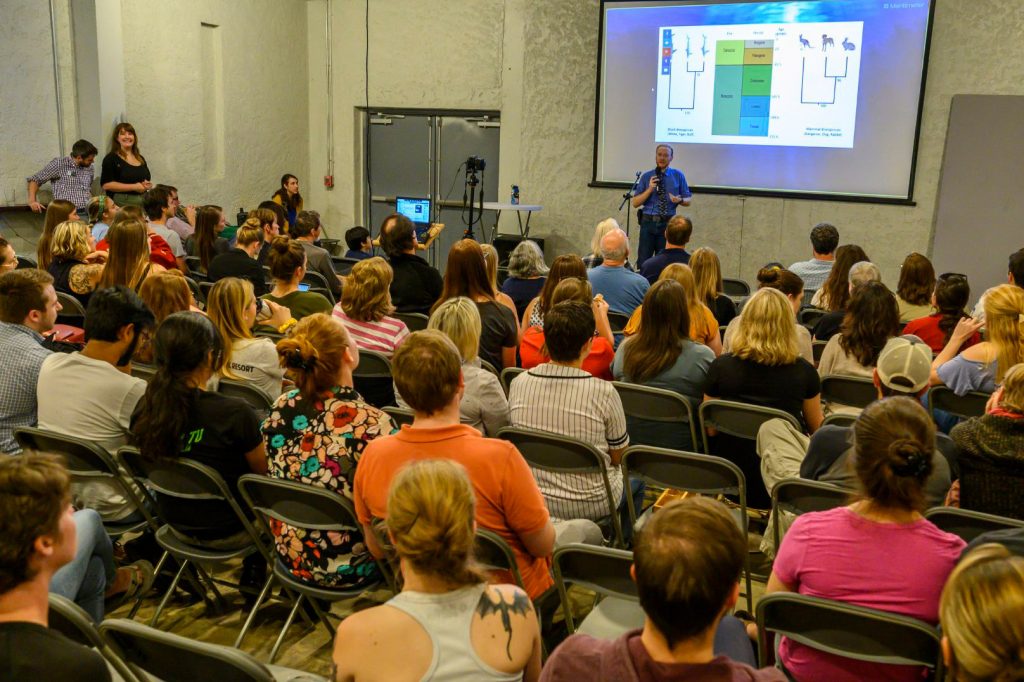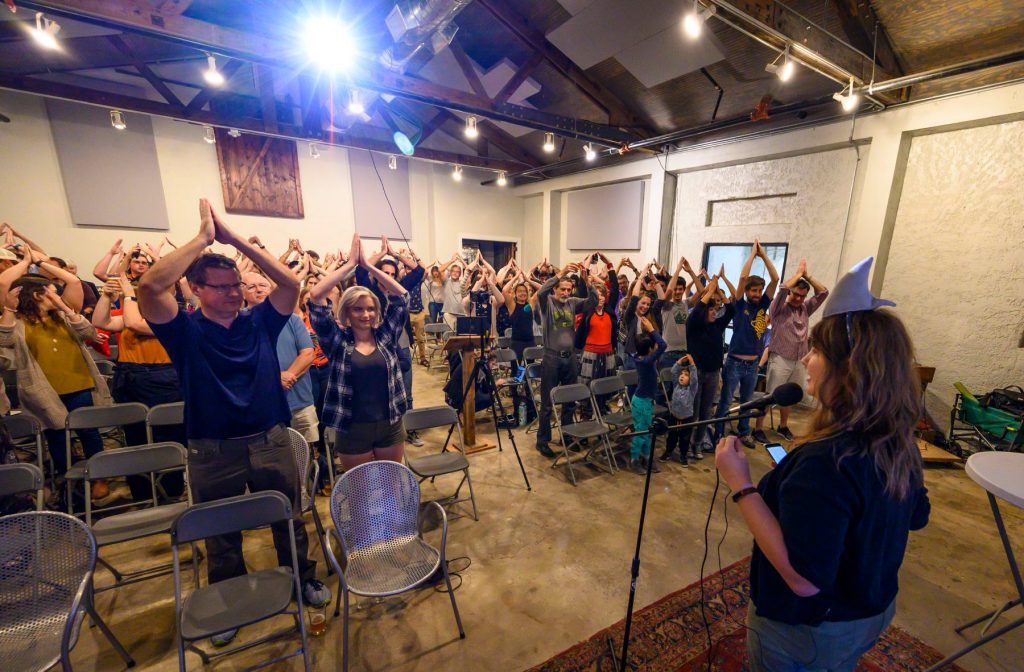Before introducing you to the Science on Tap program, let’s start with a game! First, grab your preferred beverage. Second, read each of these shark names and try to decipher which are real species and which are made up, and no Googling. Ready … GO!
- Dumb gulper shark
- Burnt slayer shark
- Garchomp shark
- Birdbeak dogfish
- Tasselled wobbegong
- Flaccid catshark
- Cavernmask shark
- Sandshaver shark
Thanks for playing along and if you identified Burnt slayer, Garchomp, Cavernmask, and Sandshaver sharks as fake names, then you are correct! Games like this are used to set the scene for each Science on Tap event, but if you accused me of using this time to tap into the audience’s more playful side, you wouldn’t be wrong.
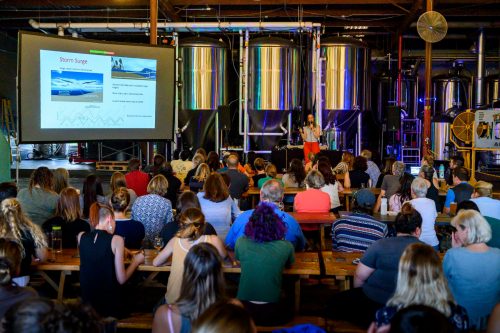
The Science on Tap series is a collaboration between the Florida Museum of Natural History and the UF Thompson Earth Systems Institute aimed at bringing science topics to the community in the form of informal, participatory presentations. The events run from 6:30 to 8:30 p.m., with the introduction, scientist talk and discussion starting promptly at 7 p.m. Ahead of the talk, attendees mingle with local science and environmental organizations. Each talk lasts for about 30 minutes before the floor is opened for questions.
The event activities and discussion are always free and full of engaging conversations. The series began in fall 2019 as a fresh take on the Science Cafes the Museum hosted in the past with the new goal of attracting broader, more diverse and socially engaged audiences.
The theme for this first series has been “Is Florida Trying To Kill Me?” a ridiculous question I thought up last summer while watching the TV show “Sinkholes” on the History channel during the height of hurricane (and mosquito) season after a weekend in my hometown of New Smyrna Beach (aka the shark bite capital of the world). Each of the events planned so far have included an element from that first lightbulb moment with some wildfires and reptiles thrown in to keep things interesting!
While I’m aware that the wonderfully wild state of Florida isn’t really out to get me, sometimes it does feel that way. We hoped with this theme we could dive deep into the common misconceptions surrounding the oddities of Florida while also understanding the large impact humans have on our environments.
To make sure our message is concise, educational, and entertaining, Sadie Mills, environmental educator and program coordinator for TESI, and I have developed a talk template and list of tips of how to give a scientific talk when your audience is chilling in a brewery with their buds. We hope by doing this we can equip the scientist with the tools they need to talk candidly and make connections with the crowd. We always review presentations to make sure research is communicated in a way that makes sense to everyone, especially those without a science background (myself included). When the scientist tells the audience about their family, their punk band’s new album, or their love of fostering dogs, they also become more relatable to the audience, allowing them to better connect with what the scientist does.
Scientists are also equipped with Mentimeter – an interactive, live presentation software that includes a polling tool – to ensure that there is audience participation throughout the talk. Speakers are asked to quiz the audience periodically to check their understanding and answers are displayed on the screen in real time.
To see a Science on Tap event for yourself while hunkered down at home, I recommend watching the crowd favorite – Tyler Bowling’s (manager of the Florida Program for Shark Research at the Florida Museum) shark presentation and stayed tuned for a new fall series starting in September 2021!
